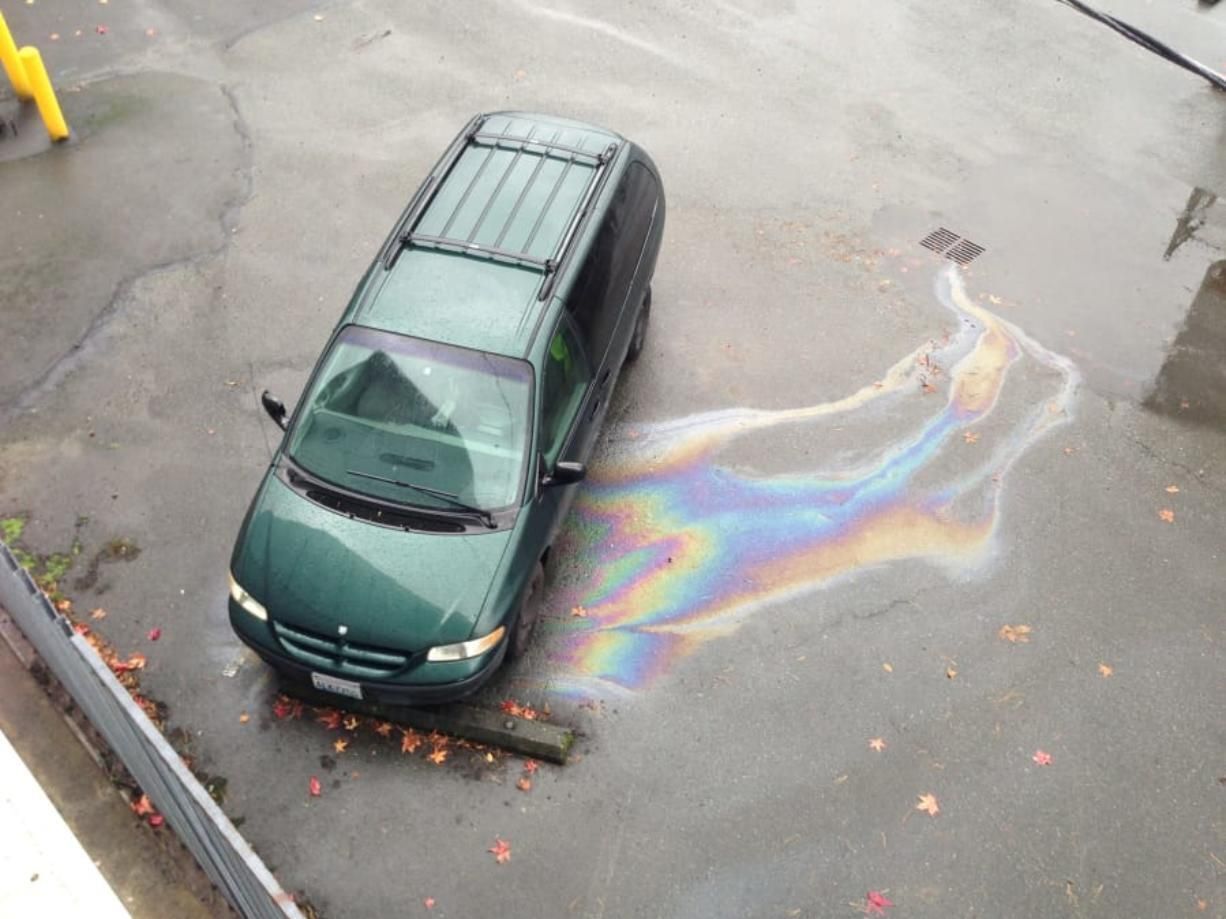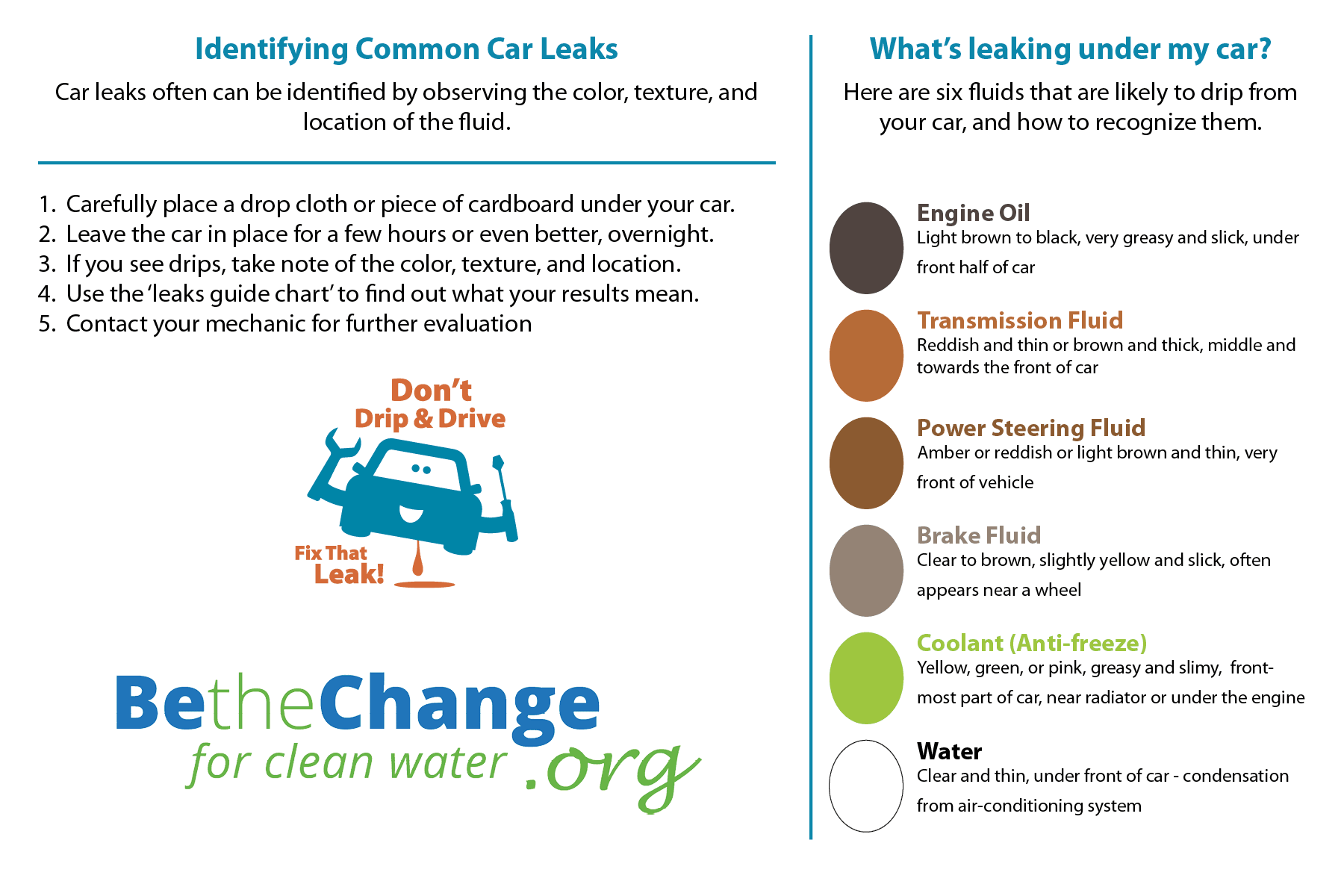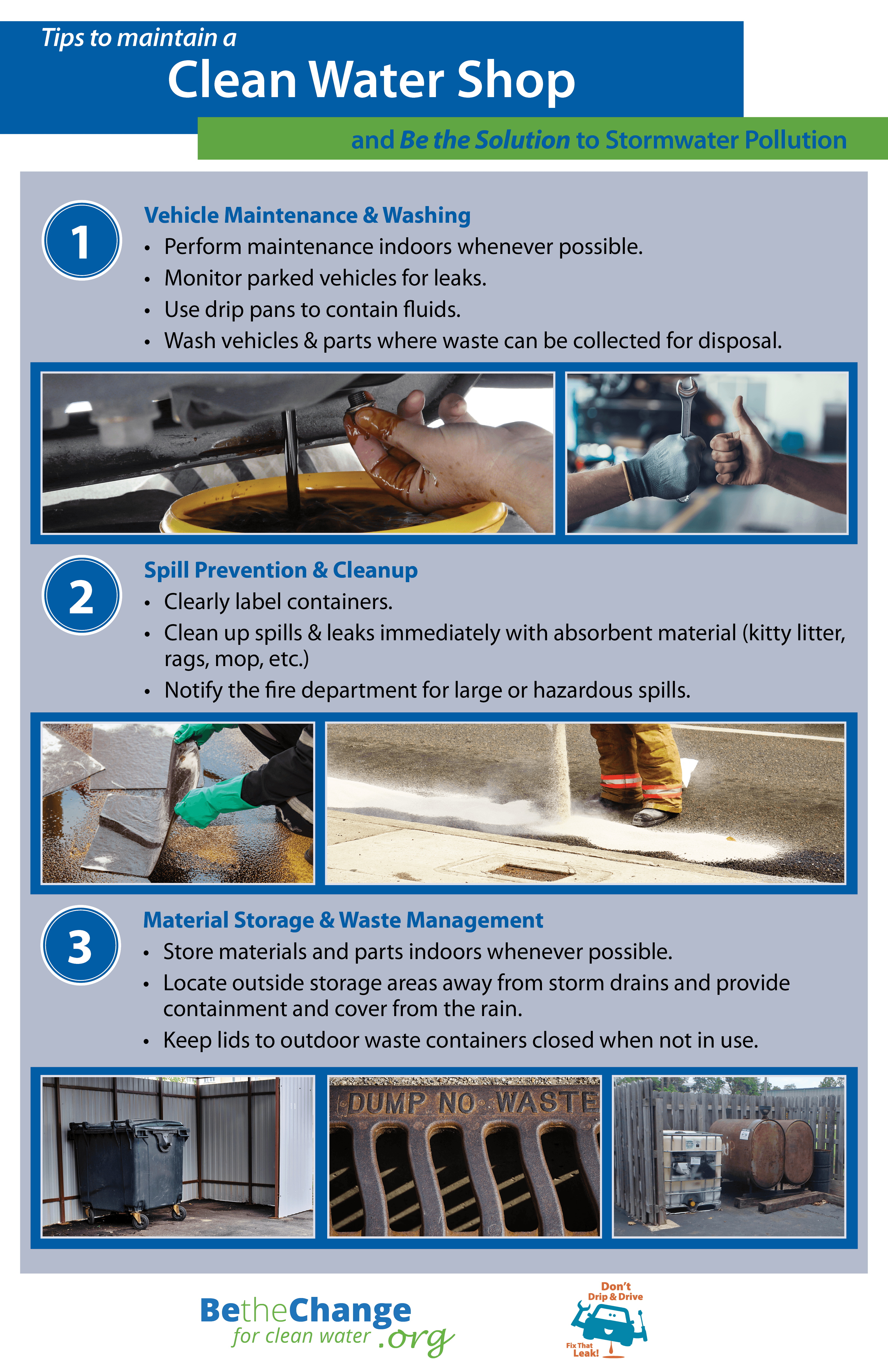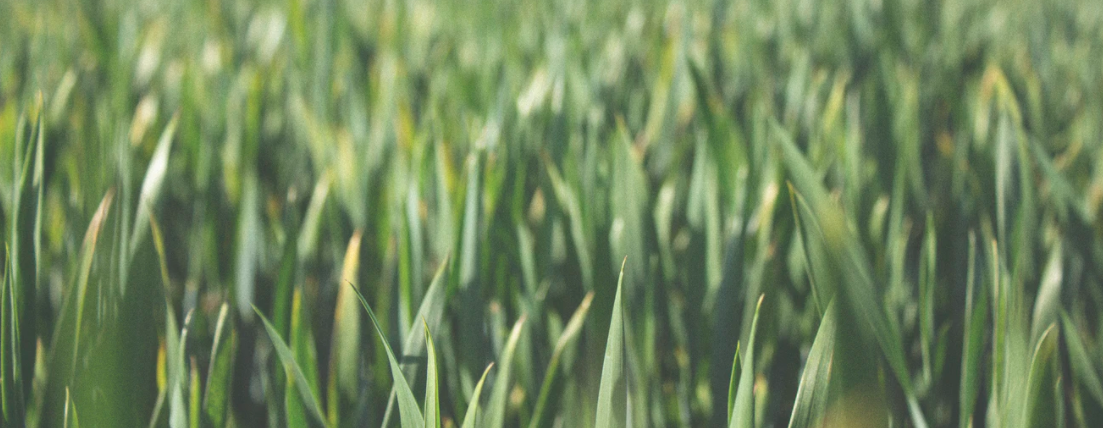Don't Drip and Drive
Concerned that your car might be leaking? Did you know that even a single drop on your driveway can mean a shorter lifespan for your car? It’s also having a huge impact on the health of our local waters. Fix that leak! A single drop of motor oil can contaminate a million drops of water. Keeping your vehicle maintained saves you money, improves fuel efficiency, and ensures our waters are safe for people, pets, and wildlife.

Many of us hop in our cars on a daily basis to get to work, school, or the store. When you get in or out of your car, you probably have a set of habits you go through while barely thinking about it. Clicking the seatbelt, turning on your headlights if it’s dark, and connecting your phone to the radio to play your favorite podcast or playlist. But what about checking for leaks? Oil, antifreeze and other fluids from your vehicle that end up on your driveway or street will eventually be carried by stormwater to the nearest river, lake or stream when it rains. This is why it’s important to make a habit of checking the surfaces where your car has been parked to see if it appears to be leaking fluid! A quick glance every time you move your car can prevent a host of automotive or environmental problems.
So what if your car is only leaking a little bit at a time? Even small leaks can create large problems for your vehicle and the environment. Depending on the fluid that’s leaking, long term damage to the engine and other parts of your car are possible. Small leaks can also add up to a big problem for our waterways when everyone has the same “put it off” mentality. In fact, a single quart of motor oil can contaminate up to 2 million gallons of drinking water.
It can be intimidating or stressful to take your car to a repair shop if you’re worried about how much money you might spend, or whether the shop will be honest about what’s wrong with your vehicle. Try to research beforehand to see if you can figure out what fluid is leaking and from what general area of your vehicle it’s leaking from. You can do this by placing paper under the general area of the leak and then using this tool (https://fixcarleaks.org/diagnose/) to identify the fluid by its color and texture.

Ask the shop to take pictures of problem areas or parts that need to be replaced, and ask for a second opinion from a different shop if you have any hang ups or concerns. Remember that auto shops must tell you the estimated price of a diagnosis or repair, and receive your verbal or written consent before taking any action, so just taking to your vehicle to the shop to investigate a leak does not mean you’ll be locked into paying for a repair right away!
If you’re a handy person who fixes your vehicle leaks at home, or does other regular car maintenance, there are steps you can take to keep local water clean and healthy as well!
- Perform maintenance and store materials indoors whenever possible.
- Use drip pans to contain fluids.
- Wash vehicles & parts where waste can be collected for disposal.
- Never dispose of fluids down a storm drain, dispose of them at an appropriate hazardous waste or recycling facility.
- Clearly label containers.
- Clean up spills & leaks immediately with absorbent material (kitty litter, rags, mop, etc.)
- Notify the fire department for large or hazardous spills.
- Locate outside storage areas away from storm drains and provide containment and cover from the rain.
- Keep lids to outdoor waste containers closed when not in use

Vehicle maintenance is important whether you take care of your own car or take it to a shop. Drips of leaking fluid that fall on hard surfaces like driveways and parking lots are easily washed into storm drains and ditches when it rains. There is no treatment or filtration between the drains and ditches and local rivers and streams! In Central Ohio, much of our drinking water comes from our local waterways, so keeping them clean and healthy is important. Don’t Drip and Drive!

